Same Day Shipping | Orders Before 12:00pm EST M-F
Call Us: 855-725-6223
Table of Contents
Hundreds of millions of individuals around the world suffer from addiction to everything from caffeine to illicit drugs. With cannabidiol’s rise in popularity, and millions of users enjoying the benefits of this supplement, some have concerns about whether or not CBD is addictive, or has the potential for form an addiction.
Cannabidiol (CBD) is one of over 100 naturally occurring cannabinoids that can be isolated from the Cannabis Sativa plant. More commonly, CBD is extracted and isolated from industrial hemp.
This 21-carbon terpenophenolic compound is formed as a result of cannabidiolic acid decarboxylation, a naturally occurring metabolic process in the Cannabis plant.
Given CBD’s widespread use, research and clinical studies have sought to assess the compound’s abuse liability and potential to form dependence (addiction).
In this guide, we explore how addiction is classified, signs to look out for, how CBD works, the pathways in which one could argue whether or not it is addictive or may contribute to addiction, and more.
Is CBD Addictive?
Short Answer: NO
Addiction is a chronic illness that is characterized by an inability to control, compulsive and/or excessive use of a substance or action (such as gambling), despite this use or action having negative consequences on their life or the lives of others.
Although the use of everything from energy drinks, to alcohol and cannabis that contains THC is voluntary, the use of some substances alters brain chemicals and structures, ‘re-wiring’ the reward systems in our brain to crave the substance.
Current scientific and clinical evidence suggests that while cannabis use does increase the risk of addiction and dependence in some people, cannabidiol does not.
According to the World Health Organization (WHO), human and animal studies looking at the ‘dependence potential’ and found that studies investigating this potential found that there was no link between CBD and addiction or substance dependence.
Some studies have even yielded results demonstrating that CBD has the potential to treat addiction (more on this further below).
Many consumers don’t realize that the molecular structure of CBD is the same as that of THC. Chemically speaking, each cannabinoid is comprised of 21 carbon atoms, 30 hydrogen atoms and 2 oxygen atoms.
However, it is the arrangement of these atoms that is responsible for the vast difference in effects when each acts on our body’s own endocannabinoid system (ECS).
Tetrahydrocannabinol (THC) interacts with the endocannabinoid system to influence a variety of physiological processes. Specifically, it causes the release of neurotransmitters, including those that activate the brain’s reward circuit.
This reward system motivates an individual to repeat the behavior that caused it to fire up, in this case, the use of THC. Continued use results in neurological adaptations in the brain that contribute to more frequent use.
Similar to THC, CBD interacts with CB1 and CB2 receptors in the endocannabinoid system. However, unlike THC, CBD is not psychoactive and does not produce a euphoric ‘high’ that marijuana is known for.
This lack of psychoactive effects is what makes CBD a non-addictive substance. While CBD is responsible for a wide range of physiological effects, these effects are largely ‘unfelt’, meaning that they don’t physically or psychologically affect the brain’s reward system in a meaningful way.
Echoing the findings of the World Health Organization, a study published in the Journal of Drug and Alcohol Dependence (2017), revealed that CBD did not have a notable effect on blood pressure, heart rate, cognition or feelings of euphoria and a lack of psychological and physical effects.
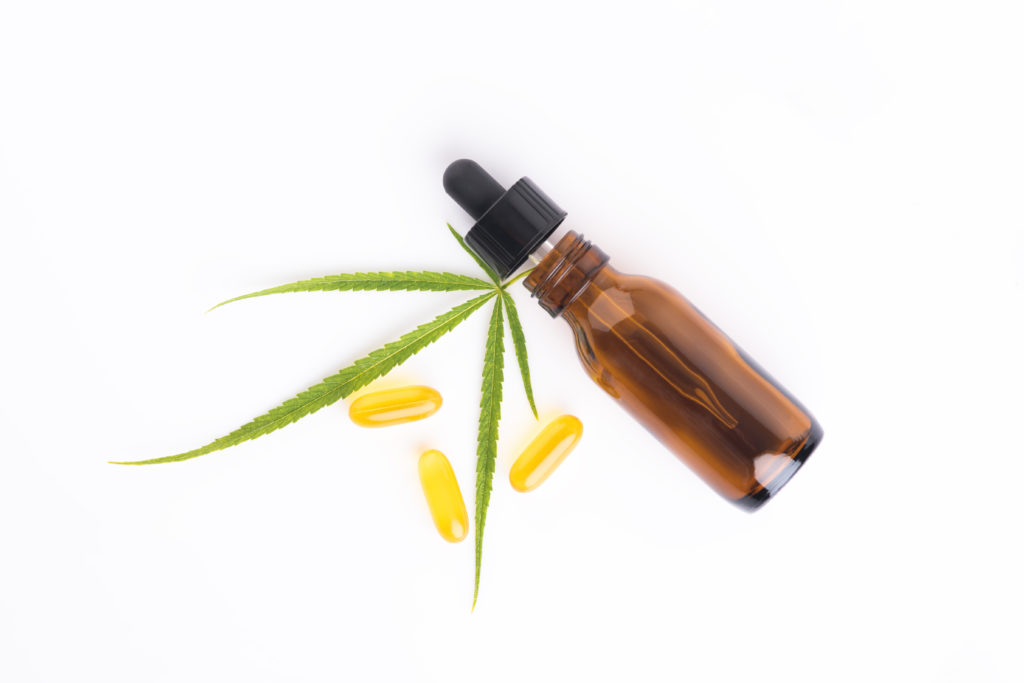
Although physically and psychologically CBD doesn’t produce a ‘high’ or euphoria, it does have the reported ability to elicit a sense of calm, feelings of relaxation, and even sedation. It is possible that individuals may find that they need (either psychologically, to reduce stress, fall asleep easier, etc.) CBD to achieve a better quality of life. This in itself could become a ‘crutch’ or a mental addiction. However, current research suggests that cessation of CBD would not cause any withdrawal symptoms.
Cannabidiol isn’t addictive, but better than that, it may be useful in combating dependence and addiction.
Although more research is needed, a study published in the Journal of Substance Abuse (2015) looked at existing clinical studies and research on CBD and addiction, identifying 14 eligible studies to evaluate the use of CBD for addiction.
The results of this meta-analysis indicated that there is evidence to support the use of CBD for both tobacco and cannabis addiction, and that other therapeutic properties of CBD may indirectly be useful to combat other addiction disorders.
Cannabidiol (CBD) is a supplement regularly used by tens of millions of individuals. This naturally occurring cannabinoid is purported to help support overall health, wellness and quality of life in a multitude of ways.
Although research regarding other aspects of CBD is in its still ongoing, the current library of clinical studies and scientific research has concluded that CBD does not pose a risk of dependency, substance abuse or addiction. In fact, in some cases, CBD may aid in combating addiction from various substances.
If you have concerns about CBD being addictive, rest easy knowing that the World Health Organization has concluded that CBD is generally safe, well-tolerated, and does not have a potential for abuse or addiction on its own.
This is in stark contrast to it’s related cannabinoid, THC.
Not sure if CBD is right for you? One of your best resources is your primary care practitioner, who can help advise and monitor CBD use.
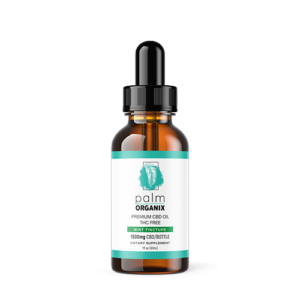
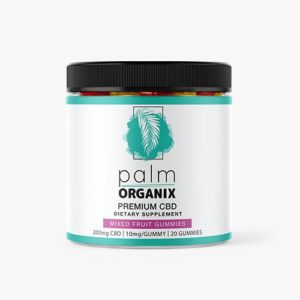
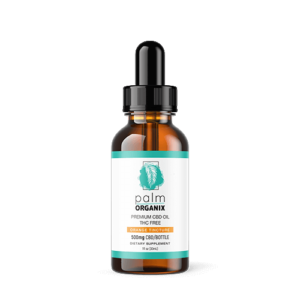
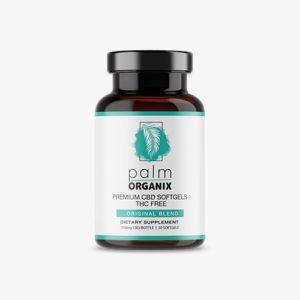
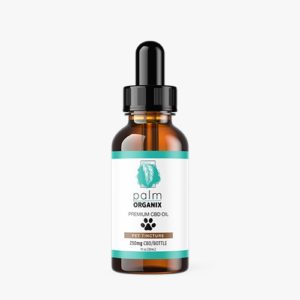
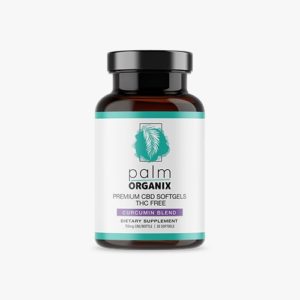
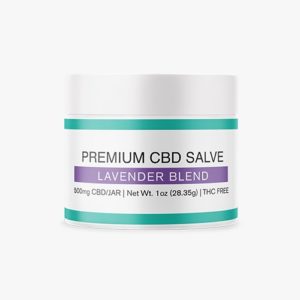
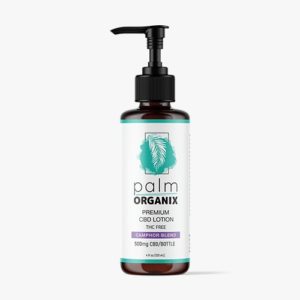

This product is not for use by or sale to persons under the age of 18. The statements made regarding these products have not been evaluated by the Food and Drug Administration. The efficacy of these products has not been confirmed by FDA-approved research. These products are not intended to diagnose, treat, cure or prevent any disease. All information presented here is not meant as a substitute for or alternative to information from health care practitioners. Please consult your health care professional about potential interactions or other possible complications before using any product. The Federal Food, Drug, and Cosmetic Act require this notice. PLEASE NOTE: Zero THC is defined as (0.0%) no detectable THC, as supported by our lab testing.

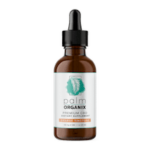
Our premium broad spectrum CBD oil tinctures are formulated to help promote your health and wellness needs. CBD tinctures are available in three strengths and two tasty flavors and are always THC Free. We deliver the finest high quality CBD oil tinctures, at affordable prices.
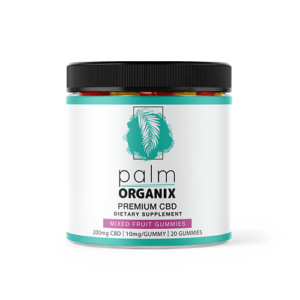
Our gummies come in different mixed fruit flavors and pack 10mg of CBD oil per gummy. There are 20 tasty hemp extract gummies in each jar. CBD gummies are a very convenient and fun way to take CBD oils. Stock up and save on our great gummy product bundles.
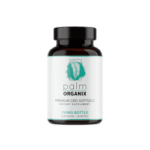
We offer a variety of hemp derived CBD oil softgel options which are all broad-spectrum and fast-absorbing. Our Regular Blend, Melatonin Blend and Curcumin Blend softgels have 25mg per capsule. We have also recently introduced our Immunity Blend Softgel with 10mg of CBD plus dried yeast fermentate and Vitamin D. Each jar contains 30 softgels consisting of the best CBD oil.
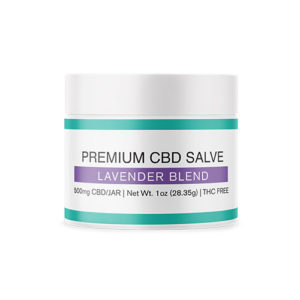
We offer a variety of broad spectrum topical products, including our hemp derived phytocannabinoid-rich salve with lavender and eucalyptus, our Camphor Blended lotion, our cooling gel roll-on, our CBD skincare lotion and our refreshing and rejuvenation CBA Face Mask. CBD creams and lotions provide targeted relief to specific areas of the body and skin while delivering high CBD content.
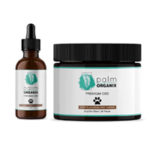
At Palm Organix™, we know how important our family pet members are. That’s why we’re proud to provide a THC Free CBD oil pet tincture product, as well as delicious-tasting 2mg CBD pet chews, made with premium hemp oil which are enjoyable products for your pet. These CBD oils products provide the health benefits they need at terrific pricing.
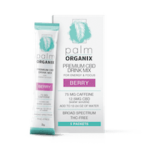
Our CBD energy drink packs are a fun way to get your CBD intake for the day, plus keep you hydrated. Mix our delicious berry flavor packet with water and sip to give you a boost during the day, or before exercise. This fun product is fast, convenient and great for those on the go.
Not all CBD oil supplements are created equal. When looking to buy CBD Oil tinctures, CBD Oil capsules, CBD gummies, pet CBD Oil products, and more, you must find the best CBD Oil. When buying CBD Oil online from Palm Organix™, keep in mind you are buying from an established expert in high-quality hemp-grown CBD Oil products. We have developed an extensive CBD Oil Blog library and a thorough FAQ section to ensure you are informed about taking CBD Oil. And, of course, we are available by phone or email to answer any specific question. Our mission is to provide you, our customer, with the quality care you need when choosing the right high-quality CBD Oil product.
Palm Organix is proud to be a member of the Hemp Industries Association. We join their trusted mission to educate and advance the CBD Oil and industrial hemp revolution. We advocate expanding research opportunities and establishing consumer-friendly CBD Oil quality control, regulation, and guidelines.

Palm Organix™ CBD Oil Tinctures are a fast and effective way of taking CBD. Palm Organix™ CBD Oil Tinctures come in refreshing mint and tasty orange flavors. Our CBD Oil Tinctures are made with the highest quality CBD Oil available on the market. CBD Oil Tinctures are perfect for those looking to begin their CBD oil journey, as there are a variety of CBD Oil Tincture strengths to choose from.
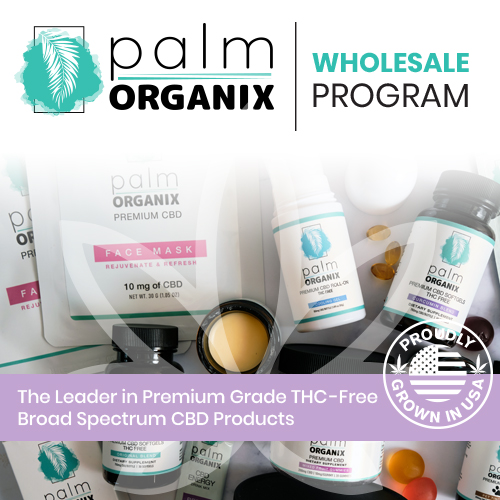
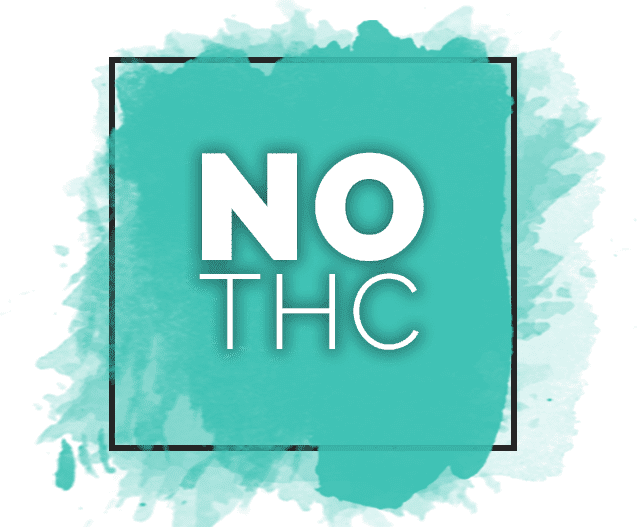
At Palm Organix, we pride ourselves in our high-quality, premium CBD oil products. We ensure that all our CBD Oil products are up to standards. Our CBD Oil products are a cut above the rest. Palm Organix guarantees that your CBD oil extract doesn’t contain any THC levels whatsoever, ensuring a THC-free CBD Oil product every time you purchase CBD with from Palm Organix.
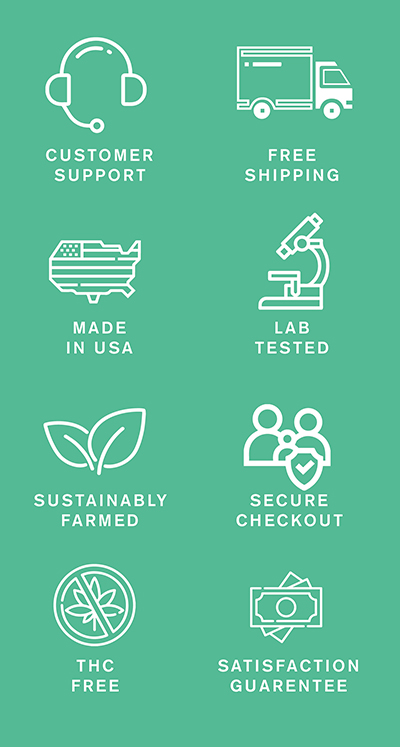

Our tasty CBD Oil Gummies are available in our original formula or new vegan style. Both CBD Oil Gummies contain 10mg of Broad Spectrum CBD Oil Hemp extract, and each jar of CBD Gummies contains 20 gummies in a mixed fruit assortment. Palm Organix™ CBD Oil Gummies have natural fruit flavoring and coloring and have THC Free CBD Oil. CBD gummies are a fun and discreet way to add CBD oil to your daily routine. Stock up and save on our best-tasting CBD Oil Gummy specials.
Our CBD Oil Softgels are carefully crafted with the highest quality CBD oil; CBD Oil Softgels can be taken with or without food. Palm Organix™ offers 4 varieties of CBD softgels; 25mg CBD softgels, 25mg CBD softgels with Melatonin, 25mg CBD softgels with Curcumin, and a 10mg Immunity Blend CBD Softgel. Our CBD Oil Softgels are fast-acting, long-lasting, and come with THC-Free CBD Oil.
The Palm Organix™ invigorating line of CBD Oil Topicals and CBD Oil Skincare include our CBD Salve, CBD Camphor Lotion, CBD Face Mask, CBD Skincare Lotion, and CBD Cooling Gel Roll-On. Our premium CBD Oil Topicals infuse natural botanicals that absorb quickly into the skin. CBD Oil Topicals are famous for targeted health solutions and healthy glowing skin. Sourced from the highest quality Hemp Farms and CBD Oil suppliers in the USA, all Palm Organix™ CBD Oil Topicals are THC-Free CBD and are third-party lab tested.
The Palm Organix™ CBD Oil pet line was carefully formulated for your pet and their health. Our CBD Oil Pet Tinctures and CBD Oil Pet Chews may help support and promote your furry friend's health and wellness. The CBD Oil Pet formula is THC-Free CBD and ideal for your dog or cat. The CBD Oil Pet Tinctures have no flavor, while the CBD Oil Pet Chews has a tasty, dog-approved beef flavor. The recommended CBD Oil treat dosage is 2 - 4 mg of CBD per 25 pounds of pet.
A CBD Oil Tincture is an extract of the beneficial cannabinoids from the hemp plant. CBD Oil Tinctures are used sublingually and can be administrated under the tongue. CBD Oil Tinctures are popular and easy to administer and absorb quickly.
Palm Organix™ CBD Oil Tinctures are crafted with fractionated coconut oil and do not contain alcohol. Our hemp-derived CBD Oils use the CO2 extraction method. We offer three strengths 500mg, 1000mg, and 1500mg. Each CBD Oil Tincture contains thirty 1ml servings per bottle.
Palm Organix™ CBD Oil Tinctures are formulated with the highest quality, sustainably farmed hemp. CBD Oil Tinctures are perfect for those looking to begin their CBD Oil journey, as there are a variety of CBD Oil Tincture strengths to choose from. Our CBD Oil Tinctures are THC-Free, and third-party lab tested. CBD Oil Tinctures are a fast and effective way of taking CBD and are available in refreshing mint and tasty orange flavors.
One of the most popular CBD products on the market is CBD oil tinctures. These high-quality, easy-to-use CBD products attract customers of all ages and experience levels because of their efficacy and accessibility. CBD Tincture comes in three different strengths, and two flavors so that it’s easy to find exactly what you want — if you know where to look and buy CBD.
CBD Tinctures: What Are They and How Are They Made?
Before purchasing some CBD oil, it’s crucial to fully understand what these products are and why people use them.
CBD oil tinctures liquid CBD drops that you consume for health and wellness support. These tinctures contain CBD-infused oils (we use coconut oil) to help the cannabinoids break down in the body during consumption. Because CBD tincture is fat-soluble, not water-soluble, the mixture in the tincture should be CBD and oil, as oil is fat-based.
Here at Palm Organix, we use an impressive broad-spectrum blend of CBD oil to celebrate more than just cannabidiol (though we sure love our CBD). By keeping in other cannabinoids alongside the CBD, the effects produced tend to be stronger and more full-bodied.
This is referred to as the entourage effect, and it demonstrates that the hemp plant’s compounds are more effective when they act synergistically. So, Palm Organix makes sure these cannabinoids can thrive together.
Of course, we ensure that our blends don’t contain any THC. That’s the only cannabinoid we make sure doesn’t enter into our CBD tincture. Though, full-spectrum tinctures are still legal and available if they follow proper federal guidelines.
CBD Oil and Your Body
People turn to CBD for a lot of different reasons. Primarily, CBD acts as fantastic support to help get the body internally back on track. The human body and health conditions contains a complex cell-signaling system called the endocannabinoid system (ECS). The ECS controls various biological functions throughout the central nervous system.
Sometimes, stress and trauma can throw off our systems internally, causing us to act differently and not feel like ourselves. Getting back on track isn’t always easy, and you often need support to do so. That’s exactly where CBD comes into play. When consumed, this cannabidiol works with the ECS to tell the body where it needs extra help, and it assists in getting that. So, over time, the cannabinoid can help us become more internally balanced.
When we’re balanced out internally, feeling good is commonplace — both mentally and physically. However, it is important to keep in mind that not every person reacts to CBD oil in the same way and don't forget about side effects. While some people may turn to cannabinoids like tinctures to help combat chronic pain, others may enjoy the calming, soothing properties it brings. The CBD journey is uniquely yours.
Palm Organix CBD Oil Tincture
Palm Organix™ CBD oil tinctures are composed of hemp-derived CBD and beneficial coconut oil (MCT) in our product formulations. Our CBD oil drops are available in citrusy orange and refreshing mint and three strengths, 500 mg, 1000 mg, and 1500 mg of CBD per 30 ml bottle.
Our high-quality CBD oil tinctures are easy to use, and each bottle contains a well-marked tincture dropper to allow for precise dose measurement. Broad spectrum CBD oil tinctures are designed to be used by placing the hemp oil directly under the tongue and holding it for one to two minutes before swallowing. Doing this helps to ensure the best results possible.
There is no set dosing chart or guidelines for using broad spectrum CBD oils. We recommend anyone new to using CBD oil drops maintain a daily regime of CBD use and increase their oil intake as needed. It is best to start with about half a dropper of CBD and go from there if you have never tried CBD before. More experienced consumers may start with a larger dose if they feel comfortable.
Broad-Spectrum Cannabidiol CBD: We use only sustainably farmed industrial hemp farmed in the United States. Our hemp oil extract is processed in a GMP-certified facility using the CO2 extraction process. All THC is removed with this extraction method. To note- Full spectrum CBD oils will have trace amounts of THC in their full spectrum hemp products.
Third-Party Lab Tested: Every batch of our CBD oil tincture is rigorously tested to ensure they are free from chemicals, pesticides, molds, and THC. All Lab results are posted on our website for complete transparency as well as accessible from the QR code on the bottle.
Highest Quality CBD: Our tinctures contain only natural broad-spectrum hemp-derived CBD. Our simple, pure CBD oil tinctures are gluten-free, non-GMO, cruelty-free, and vegan. These carrier oils contain MCT oil with beneficial fatty acids.
Customer Service: We value our customers, and our team is available M-F, 9 am-5 pm EST to answer any questions. We offer free shipping on all orders via USPS first class mail. All products have a 30-day money-back satisfaction guarantee. Read our customer reviews to hear how others are enjoying the health benefits of our quality broad spectrum CBD products.

How long do CBD tinctures last?
CBD's effects provide pain relief, anxiety relief, stress relief, and a host of other ailments. On the other hand, the duration of CBD's effects varies greatly. This is because various factors affect the duration of the CBD benefits.
How to use CBD tinctures?
CBD tinctures are very easy to use. Avoid storing in places with strong odors and high temperatures; soak CBD oil under your tongue for 30 seconds before swallowing or adding to your food.
What are CBD tinctures?
CBD oil tincture is a highly concentrated liquid version of CBD oil (usually mixed with an oil such as MCT oil). The CBD oil tincture bottle comes in 30 ml (1 oz) vials and is distributed sublingually. High CBD Hemp Oil The most common way to absorb CBD oil is through tinctures.
How long do CBD tinctures good for?
Effect and expiration time vary by product, brand and dosage.The effect is often noticeable after the first use of our products and you immediately notice the positive benefits and uses.
Palm Organix™ CBD Oil Gummies are delicious traditional-style gummies infused with 10mg of phytocannabinoid rich hemp CBD Oil extract. Each CBD Oil Gummy jar contains an assortment of grape, orange, and lemon-flavored CBD Oil Gummies.
Palm Organix™ CBD Oil Gummies come in 20 pieces per jar. Each CBD Oil Gummy contains 10mg. Our CBD Oil Gummies are a fun, convenient, and discreet way to administer your CBD routine. Packaged in a multi-fruit assortment with natural fruit flavors, our CBD Oil Gummies boast all-natural coloring and all-natural flavoring and do not contain artificial sweeteners. Our CBD Oil gummy recipe has the perfect combination of taste and texture that every palate will enjoy.
Our tasty CBD gummies are available in our original formula or new vegan style. Both gummy types contain 10mg of Broad Spectrum CBD oil Hemp Extract. Palm Organix CBD Oil Gummies are THC-Free, and third-party lab tested.
Hemp CBD Gummies For Sale
Palm Organix CBD oil gummies are deliciously gummy-infused CBD products containing 10mg of the rich cannabidiol cannabinoid hemp extract in each gummy. Each jar contains 20 soft, chewy gummies that have natural fruit flavor and coloring. Whether you are new to experiencing CBD or looking to enhance your overall wellness routine, Palm Organix offers the best CBD gummies that will uplift and enhance your consumption.
If you are new to CBD and not sure where to start, the best CBD gummies from Palm Organix are the perfect source for you to learn and understand how CBD gummies can give you comfort and relief from various health conditions.
CBD Gummies Ingredients
Our broad spectrum hemp extract ensures each jar of CBD gummies is crafted carefully and with only the highest quality oil and ingredients. Each product contains multiple beneficial compounds and cannabinoids extracted from our sustainably farmed hemp plants. Palm Organix CBD gummies are 100% THC-free and gluten-free with all-natural colors and fruity flavors. Each CBD gummy contains 10mg of USA grown Hemp. Our hemp plants are grown in the United States, with no artificial flavors or intoxicating THC in the final product. Other ingredients of Palm Organix include:
Original CBD Gummies - Corn Syrup, Refined Sugar, Pectin, Phytocannabinoid – Rich Hemp Extract, Sodium Citrate, Glycerin Fatty Acid Ester, Lecithin, D-sorbitol Solution, Gelatin, Citric Acid, Natural Lemon Flavor, Natural Grape Flavor, Natural Orange Flavor, Safflower Lemon Extract, Violet (Beet) Color, Carotino Color, Lemon Concentrate, Red Grape Concentrate, and Orange Juice Concentrate.
Vegan CBD Gummies -Tapioca Syrup, Sugar, Pectin, Sodium Citrate, Citric Acid, Broad Spectrum Hemp Oil (0.0% THC), Natural Flavors, Natural Colors, Malic Acid, Lactic Acid
High Quality Lab Test Hemp CBD Gummies
Today’s legal hemp market provides countless different CBD oil products and gummies available for anyone to try. When it comes to exploring the best CBD gummies on the market, Palm Organix offers high-quality, all natural ingredients and hemp extracts for an unforgettable and beneficial CBD gummies experience. CBD gummies near me can be purchased online at CBD oil shops like Palm Organix. Palm Organix CBD Gummies offer a fresh and fruity twist on this major cannabinoid extracted from legally, sustainably farmed hemp. If you are looking for the best quality CBD gummies, shop our store to find the best CBD available today.
All of our CBD oil products sold in our online dispensary are third-party lab tested, with Certificate of Quality Assurance from our suppliers. We consistently test products that are free from harmful pesticides, molds, or chemicals. At Palm Organix CBD Shop, we are motivated to create honest, trusted, and quality CBD products, with various products and information accessible to you instantly through our online CBD shop.
Broad Spectrum CBD
All of our Palm Organix CBD products in our CBD shop contain broad spectrum CBD. This means that our CBD products include all of the beneficial cannabinoids of the hemp plant except for THC. Broad spectrum products allow our customers to enjoy the natural health benefits of CBD while remaining free of THC, avoiding any traces of THC in their system. Plus, our CBD shop’s broad spectrum products allow for the entourage effect, when multiple different cannabinoids work together in the body, to take full effect.
Multiple studies and research have recently shown the wide range of beneficial and therapeutic properties that CBD gummies can provide in users. CBD may help provide a much needed relief from a variety of physical and mental conditions that often keep us from looking and feeling our total best. CBD is not currently FDA approved for specific treatment of conditions such as pain or specific physiological diseases. However, evidence and studies have suggested that CBD holds promising potential in the following ways:
Sleep: Palm Organix CBD Gummies may support a good night’s sleep, allowing users to wake up feeling refreshed and focused from a deep and well rested night. The National Sleep Foundation states one third of Americans suffer from multiple types of sleep disorders. CBD gummies near me such as Palm Organix are best recommended as a sleep supplement to help you reach the desired sleep you need in a more natural and calming way.
Pain: The best CBD gummies have the potential to enhance the blockage of neurotransmitters that send pain signals to our brain. When consumed, this cannabinoid can help to further reduce the level of pain symptoms felt, acting as a natural remedy and treatment to chronic or minor pain. Palm Organix CBD Gummies provides fruity, soft gummies that can help reduce levels of chronic pain and discomfort in users.
Anxiety: Along with the physiological benefits of Palm Organix CBD Gummies comes a better sense of overall wellness for users who choose these products. Broad Spectrum CBD gummies are known to enhance overall mood and symptoms of anxiety and depression. When this cannabinoid is consumed from CBD gummies, users may feel reduced feelings of stress and anxiety, providing a more uplifting perception and overall feeling.
How Many CBD Gummies Should I Eat?
The best part of Palm Organix’s CBD Gummies is that they can be eaten and taken any time of the day. There are no specific dosage guidelines regarding CBD Gummies due to the lack of less than 0.3% of intoxicating cannabinoids such as THC. Palm Organix gummies have 10mg of CBD per gummy, with 20 CBD gummies in one jar. Because of this, new customers are often recommended to start at a small yet decent dose in order to feel how the effects of the gummies work with their body.
Are CBD Gummies Legal and Safe?
CBD Gummies are considered legal under The Farm Bill Act that was passed in 2018. All CBD products, including CBD gummies, must contain less than 0.3% THC to be legal hemp. The Farm Bill descheduled hemp from the Controlled Substances Act in early 2019, created an opportunity in the industry for industrial hemp to become a key necessity in the CBD manufacturing process. Palm Organix CBD Gummies are proud to be made from legal hemp that contains less than 0.3% THC.
CBD gummies have become a great option for people looking to enjoy their CBD experience without the act of inhaling or smoking. Many medical patients prefer Palm Organix’s CBD gummies because of their low risk of lung damage or other medical conditions compared to smoking or vaping. Edibles infused with this therapeutic CBD compound can be consumed discreetly and leave sweet, fruity-flavored goodness. When CBD gummies are consumed, the cannabinoids are absorbed in our liver and bloodstream quicker, compared to inhaling. Because of this, edibles can take anywhere from 30 minutes or up to an hour and a half for effects to kick in.
When considering consuming CBD gummies, keep in mind that CBD is often indicated as generally non-addictive and intended for long-term use. This is because of how the CBD works when reacted with endocannabinoids in our own bodies. By interacting directly with the endocannabinoid system when consumed, CBD helps maintain this system’s functionality of internal balance, mood, appetite, motor functions, clarity, and other bodily functions. Side effects of using CBD gummies have been noted as surprisingly rare, although it is recommended to consult with your doctor before considering CBD gummies for children.

What do CBD gummies taste like?
CBD gummies taste like traditional gummy bears, sweet, fruity and tasty. Our gummies are made with natural fruit flavors and our Vegan gummies are dusted with sugar cane. Hemp derived CBD gummies however will have a slight earthy aftertaste.
Will CBD gummies help me sleep?
According to the National Sleep Foundation, a third of Americans suffer from multiple types of sleep disorders. CBD gummies may support a good night’s sleep allowing you to wake refreshed and focused. We suggest you consult with your physician about incorporating CBD gummies as part of your sleep schedule. Palm Organix™ CBD gummies are best used as a supplement. These statements have not been evaluated by the FDA.
Can you give CBD gummies to children?
CBD stands for cannabidiol, and it is one of over 100 cannabinoids produced by the hemp plant. By interacting directly with the endocannabinoid system (ECS) already present in our bodies, CBD gummies and CBD products help that system to maintain a healthy internal balance and assists with regulating a number of critical bodily functions. Side effects of using CBD gummies are very rare and surprisingly few. Recent scientific and medical research has also indicated that CBD is generally non-addictive and intended for long-term use. We advise anyone considering CBD gummies for their children to consult with their child’s pediatrician for medical advice. Palm Organix™ CBD gummies are best used as a supplement.
When should I take a CBD gummy?
A CBD gummy can be taken any time of day. There are no specific CBD dosage guidelines, so most people start slow and add to their daily dose as needed. CBD gummies come in various strengths of CBD potency, so it is important to know the amount of CBD per gummy. The Palm Organix brand has 10 mg of CBD per gummy, and there are 20 hemp CBD gummies in each jar.
Are Palm Organix CBD gummies THC Free?
Palm Organix™ all of our CBD gummies are 100% THC Free, Gluten Free, boast all-natural coloring and all-natural fruit flavoring in each CBD gummy. Our CBD gummies are the perfect combination of taste and texture. Each CBD Gummy contains 10mg of USA grown Broad Spectrum Phytocannabinoid Rich (PCR) Hemp CBD.